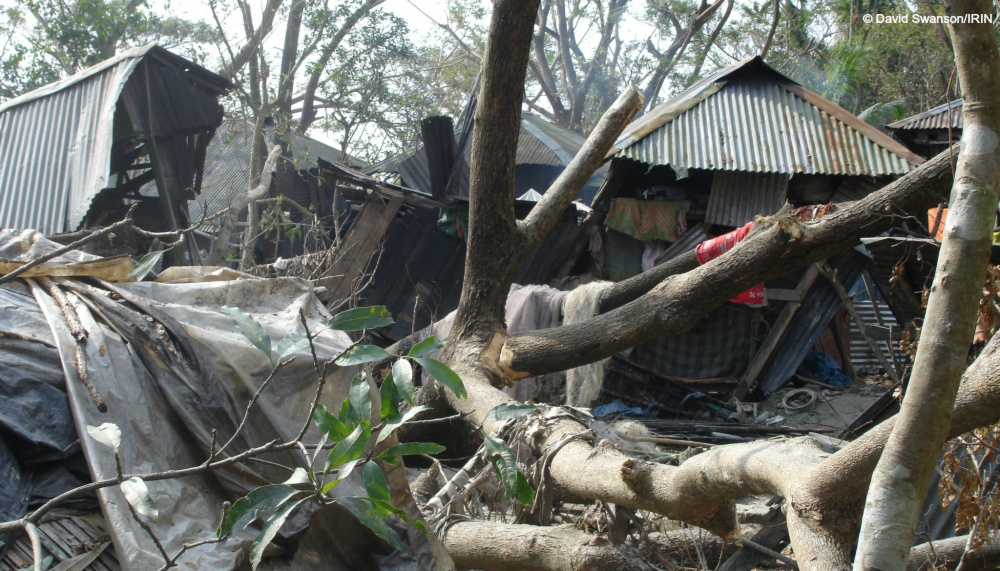
Urgent call for a Special Rapporteur on climate change and human rights
Climate change represents one of the foremost threats to human rights. Organizations and individuals can help safeguard them by taking these online actions.
“We went home [after the cyclone had passed] and saw that there was nothing left. There wasn’t a single house that you could live in. Only the houses built around trees, somehow their structure was still there, but they were unlivable. All the mud houses, clay houses were completely gone,” Ataur Rahman, former resident of Patuakhali in Bangladesh.
“We have a continuous lack of food. Now I am not old, and I can go and work, so somehow I am able to sustain my family. But people in their 70s, 80s and 90s, many of them cannot work. Many of them go a whole day without eating,” Anil Krishna Roy, resident of Jaliakhali.
“We are unable to grow crops here because of salt water. No plants are growing, no vegetables are growing. Goats, cows, ducks and hens have almost disappeared. God provides us with [fresh] water from this pond, and we are surviving due to that. In two or three years there will be no people in this area.” Dilipur Kumar Mandor, resident of Golardangi village
Climate change amplifies existing social, environmental, economic and political stresses and creates new ones. Its multiplier effect will push some of the world’s poorest and most vulnerable people deeper into poverty.
A large proportion of the planet’s population already lives in conditions where they are denied their basic human rights. There is no doubt that, without action, deteriorating environmental conditions associated with climate change will see this increase as food and water security decline, homes are damaged or destroyed by extreme weather events and more lives are threatened.
Over the past four years, the United Nations Human Rights Council has passed three resolutions recognising that climate change poses an immediate and far-reaching threat to people and communities around the world and has adverse implications for the full enjoyment of human rights. These include the rights to life, food, health, water, housing and self- determination.
By 2080, climate change could result in an additional 35 million to 170 million undernourished people in developing countries. In Africa alone, by 2020, 75 to 250 million people will be exposed to increased water stress due to climate change. 46 countries – home to 2.7 billion people – are considered to be at high risk of violent conflict due to the combined effects of climate change and ongoing socioeconomic and political problems. International negotiations on climate change have so far failed to adequately address the humanitarian and human rights impacts of climate change. It is now time for the Human Rights Council to take positive action to safeguard these rights under threat and support the governments of the first and worst affected countries.
“Climate change is related not only to environmental factors but also to poverty, discrimination and inequalities – this is why climate change is a human rights issue.” Kyung-wha Kang, UN Deputy High Commissioner for Human Rights.
The United Nations Human Rights Council must adopt a new mandate for a special rapporteur on climate change and human rights. The mandate should take stock of impacts of climate change, mitigation, adaptation on human rights and provide inputs to the UN Framework Convention on Climate Change (UNFCCC) process. It could include identification and awareness raising awareness of best practices and make recommendations to governments and the international community about how we can best safeguard human rights in our changing world.
SIGN UP FOR OUR EMAILS AND STAY UP TO DATE WITH EJF